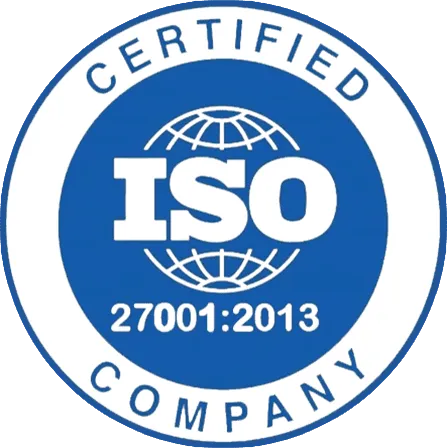What is ecommerce platform migration
Ecommerce platform migration is the process where brands shift their front end and/or the back end of their ecommerce store from one platform to another. Businesses shift from their existing ecommerce setup to new and better technical infrastructures to give a technical edge to their brand. The shift includes everything from products, collections, pages, blogs, customer data, etc from their current platform to the new one.
The ecommerce migration process entails the following steps:
- Drafting a well-planned strategy to migrate the ecommerce website
- Importing the existing content of the website by identifying all the data that must be migrated
- Designing the look and feel of the new website with a full visual layout
- Backing up the identified data before the ecommerce website migration
- Migrating the data once the domain setup of the new website is done
- Setting up the shipping partner, payment provider, tax configurations, plugins connections, etc on the new platform
- Testing the ecommerce website for hiccups and fix them (if any) before going live
It is essential to be equipped with the right tools to keep customers hooked to the brand.
Ecommerce replatforming becomes inevitable when an existing platform falls short of fulfilling the current and future requirements of enterprise business. Sometimes, migration is also a good option if brands are stuck with a complex and rigid platform that suits the current requirements but does not provide ease of use.
When should brands consider ecommerce platform migration
Brands should consider ecommerce platform migration when in spite of having the best products and competitive prices, the sales slow down or their process of customization becomes too complex. Here are a few things that indicate a need to re-platform an ecommerce website:
- Poor site performance: An increase in the abandoned cart and bounce rates is the first indicator of a poorly performing site. A slow-loading site is one of the major concerns for an enterprise brand. A site can be performing poorly for multiple reasons like unresponsive designs, outdated technology, etc.
- Limited scalability: With limited scalability an enterprise brand can miss on sales opportunities and fail to handle high-volume traffic during peak seasons. Ecommerce website migration becomes a must to handle, manage, and display sellers and their inventories.
- Difficult customizations: The ability to quickly customize the ecommerce platform is essential for the changing market dynamics. Brands need to customize their platform to run marketing campaigns, offer discounts, or build landing pages for their different buyer segments. And if these simple customizations take weeks or months to implement, the business will lose its customers to the competitors.
- Limited scope for personalization: With personalization being the king of marketing, brands need to craft personalized shopping experiences for their customers. Customers look for their preferred payment gateways, currency, language etc while shopping. And when the brand fails to implement such changes easily and quickly, ecommerce replatforming becomes a must.
- Tough to pivot to new business models: Enterprise businesses today need to think of out-of-box solutions to experiment and give their brand a winning edge. If the current platform is designed to only support the traditional models and restricts combining different business models, it's time to migrate the platform.
- Limited integrations: Integrating with the best-in-breed solutions for various business needs should be easy and quick. If the current platform makes it tough to integrate with various software like CRM, accounting, etc, the enterprise brand needs ecommerce migration services to a different platform.
- Lack of insights and reports: To be able to strategically plan business moves for growth, enterprise brands need access to detailed insights on customer behavior, their buying journeys, sales performances, etc. By migrating to a new and advanced platform, brands can access rich data and insights for their business.
Making a change in the existing ecommerce platform can help businesses boost their sales ratio and unlock new growth opportunities. As brands move to a technologically superior, user-friendly, and cost-efficient ecommerce platform, they set their business for unparalleled growth.
What are the features to consider while planning ecommerce platform migration
For an easy ecommerce platform migration, brands need plug-and-play solutions that help build ecommerce solutions for fast-growing, high-volume businesses. The migration process should not be lengthy and complex but a smooth painless transition.
Here are a few features that enterprise brands should consider while planning their ecommerce migration:
- A well-rounded ecommerce platform designed for businesses across industries and geographies
- No costly plugins and extensions to build, run and manage the business
- Transparent transaction costs for high-volume businesses
- Plug and play solutions that eliminate plugin conflicts and breaks
- Effortless business with user-friendly and intuitive backend
- Secure enterprise ecommerce solutions with multi-level security
- Ability to build high-performance ecommerce stores that give top-performance
- Easy customizations to the front end as well as the backend
- Auto-upgradable platform that eliminates the need for further ecommerce migration
Ecommerce replatforming may seem like a tiresome task, but with a next-gen ecommerce solution like StoreHippo, the process can be smooth and seamless. StoreHippo comes with a well-rounded migration solution that can align with the unique business needs of diverse businesses.
Why StoreHippo is the best choice for pain-free ecommerce platform migration
StoreHippo helps create the most advanced online store to help businesses stay ahead of the curve. Enterprise businesses can plan their ecommerce website migration with StoreHippo’s channel migration solutions for Shopify, WooCommerce and Magento that helps businesses to migrate to StoreHippo in just a few easy steps. With StoreHippo brands can build ecommerce solutions that are tailored to their unique business requirements.
Here are a few reasons that make StoreHippo the best choice for pain-free ecommerce platform migration:
- Feature-rich, user-friendly and an intuitive dashboard
- 300+ built-in features and tools for smooth website functioning
- No coding required to add new pages, products etc
- Decoupled headless architecture to build disruptive ecommerce solutions
- Scalable MACH architecture to build tailored customizable solutions
- Fully hosted and managed cloud-based infrastructure
- Quickly add multiple touchpoints with omnichannel solutions
- In-built mobile apps builder to take the business on mobiles and build PWA stores
- Automatic software upgrades and application monitoring
- End-to-end customers solution with easy ecommerce migration services
- In-build SEO and other marketing features
- Support for seamless third-party integrations, unified notifications, and multi-channel social integrations
Along with the above-mentioned features, StoreHippo builds high-performance online stores with peak load tolerance. Enterprise brands can eliminate the need for migration and build a successful online business with its top ecommerce platform’s inbuilt features. Are you ready for your ecommerce platform migration with StoreHippo? Explore more features by starting your 14-day free trial now.


















